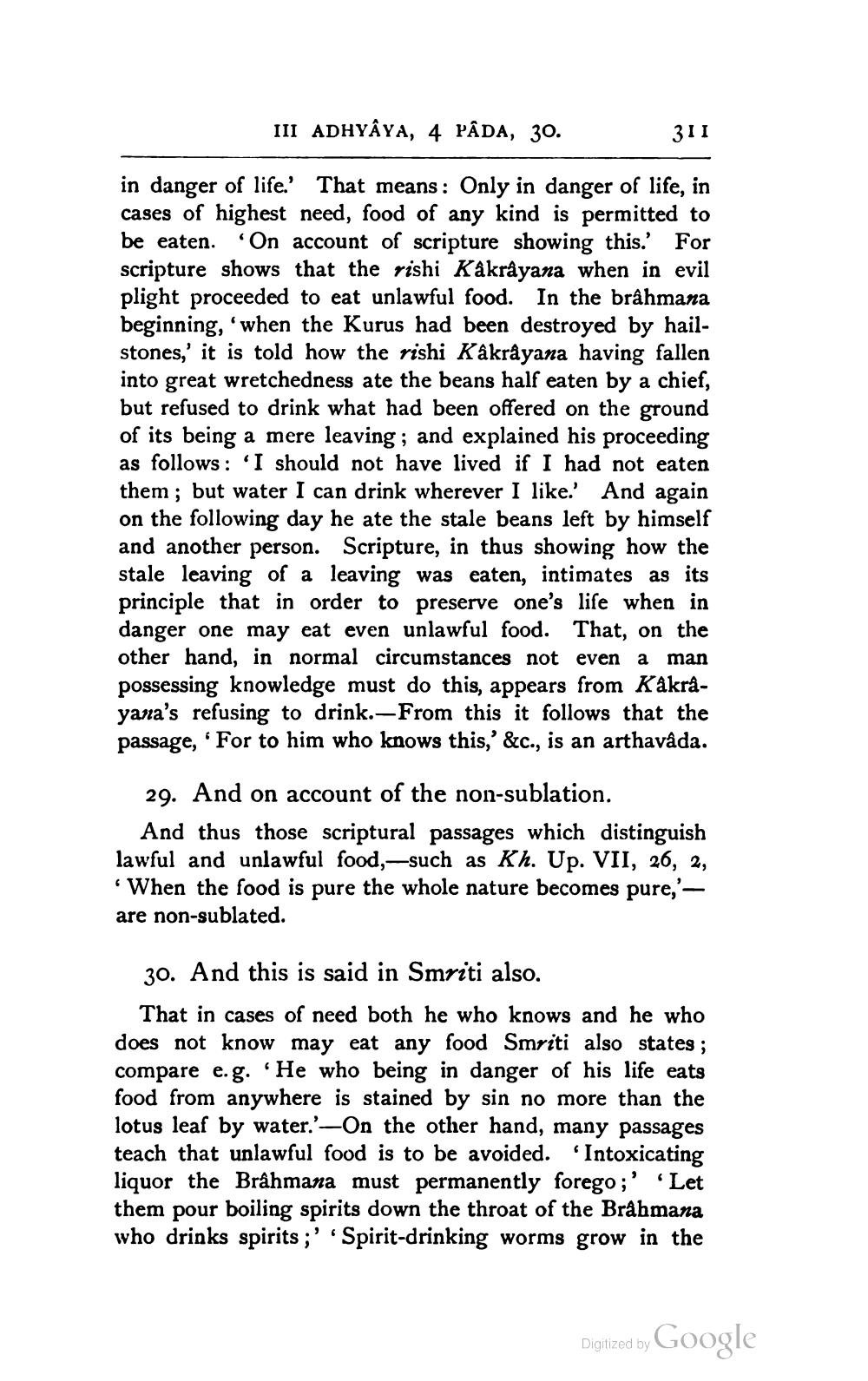________________
III ADHYAYA, 4 PÂDA, 30.
311
in danger of life.' That means: Only in danger of life, in cases of highest need, food of any kind is permitted to be eaten. 'On account of scripture showing this.' For scripture shows that the rishi Kakrayana when in evil plight proceeded to eat unlawful food. In the brâhmana beginning, 'when the Kurus had been destroyed by hailstones,' it is told how the rishi Kåkråyana having fallen into great wretchedness ate the beans half eaten by a chief, but refused to drink what had been offered on the ground of its being a mere leaving; and explained his proceeding as follows: 'I should not have lived if I had not eaten them ; but water I can drink wherever I like. And again on the following day he ate the stale beans left by himself and another person. Scripture, in thus showing how the stale leaving of a leaving was eaten, intimates as its principle that in order to preserve one's life when in danger one may eat even unlawful food. That, on the other hand, in normal circumstances not even a man possessing knowledge must do this, appears from Kåkrayana's refusing to drink.- From this it follows that the passage, 'For to him who knows this,' &c., is an arthavada.
29. And on account of the non-sublation.
And thus those scriptural passages which distinguish lawful and unlawful food,-such as Kh. Up. VII, 26, 2,
When the food is pure the whole nature becomes pure,' - are non-sublated.
30. And this is said in Smriti also.
That in cases of need both he who knows and he who does not know may eat any food Smriti also states; compare e.g. 'He who being in danger of his life eats food from anywhere is stained by sin no more than the lotus leaf by water.'—On the other hand, many passages teach that unlawful food is to be avoided. 'Intoxicating liquor the Brâhmana must permanently forego;' 'Let them pour boiling spirits down the throat of the Brahmana who drinks spirits ; ' Spirit-drinking worms grow in the
Digitized by
Digilzed by Google




